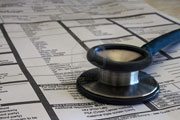
The Clinical Laboratory Improvement Amendments are a series of regulations imposed on clinical laboratories by the United States Federal Government. These regulations are in place to guarantee the quality and delivery of laboratory services to patients within the jurisdiction of federal law. CLIA regulations encompass everything from specimens that can be tested, how physicians should order the tests, to what can be charged to the patients by the laboratories. If a laboratory receives federal funds of any kind, like Medicare or Medicaid, it must comply with CLIA regulations.
Requesting Lab Tests
In the United States, only authorized medical providers can request laboratory tests for patients under their care, with some exceptions. Who is an authorized medical provider varies from one state to another, but, in general, they are physicians, physician assistants, and nurse practitioners. The exceptions include screening tests whose results would not require an immediate medical intervention.
Form Requirements
According to CLIA subpart K, the form must include the name of the person requesting the test, such as the physician or anyone who will be contacted with the results of the test, especially if the results indicate a life-threatening condition. The form must also include the patient's name, date of birth, and a unique identifier, such as a social security or medical record number. The time and date for the collection of the specimen should also be specified in the form since many tests are time-dependent. If the test is a Pap smear, information on the patient's last menstrual period or any previous results or medical history of concern should also be included. Finally, the form must also include the test to be performed and the sample type on which the test must be performed.
Record Keeping
The test request must be made in writing or electronically. Oral requests, such as those made by telephone, must be backed up by a hard copy or electronic requisition within 30 days of the request. If a requisition is not available and the patient's medical chart or physician's notes are used to order a test, then a copy of that chart or notes must be submitted to the laboratory. CLIA also requires laboratories to conduct quality assurance of any transcription of records from hard copy into electronic systems. In all cases, the laboratory must keep requests on file for varying lengths of time, depending on the kind of test performed and the local laws regulating such record-keeping.
Exceptions
Exceptions to the CLIA regulations mostly have to do with confidentiality or delicate situations. In the early days of the HIV/AIDS epidemic, people tested for HIV exposure were not identified by name. Also, some research protocols that call for double-blind studies--where neither the researcher nor the research subject knows who is receiving the active treatment--may be excluded from these requirements.

